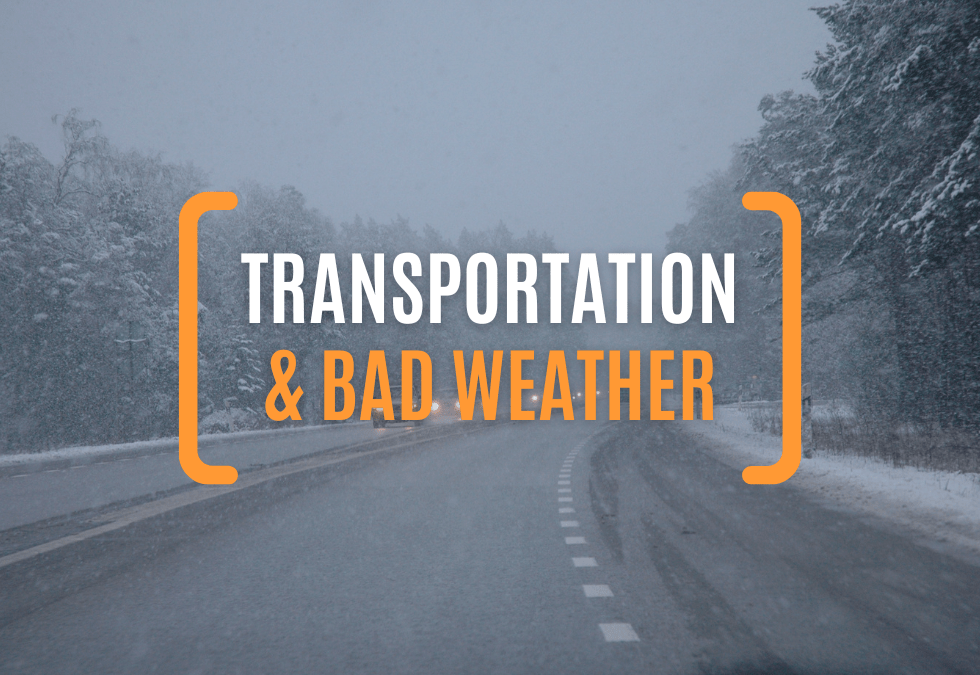When bad weather strikes, trucking companies still have an important job to do. During the winter season, parts of the United States experience colder and wetter temperatures, impacting how you get the job done.
Whether you encounter fog, rain, wind, or snow, bad weather has a significant impact on trucks and the roads we travel. Weather can affect visibility, the way you handle your truck, and travel delays. As a Driver, your safety relies on being prepared. To help prepare for a safe transit, here is a list of the ways fog, rain, wind and snow impact transportation.
Fog
On foggy days, plan for prolonged travel time as fog reduces visibility. Expect traffic speed to be affected and keep in mind there is a higher risk for accidents.
Rain
Even the slightest rain can cause pavement friction, while heavier rain can impact visibility. Rain can also increase braking distances and the likeliness of wheel spinning or hydroplaning. Heavy rains pose the risk of roadways flooding, dangerous driving conditions, and detours. It’s best to plan for increased travel times.
Wind
The slightest gusts of wind can make it harder to control your truck, and maintaining control with winds greater than 50 mph is nearly impossible. It’s important to take caution on bridges and overpasses as these become especially dangerous in windy conditions. Remember to research forecasted wind speeds and consider waiting for conditions to improve if they pose a risk.
Snow
Snow decreases visibility and traction while also impacting travel delays, road closures, and driver control over bridges and ramps. When traveling in snowy regions, make sure your windshield wipers and defroster are in top shape. Drivers should use low beams to help improve visibility and should also increase driving distance to allow for safe braking.
Final Thoughts: Be Prepared
Fog, rain, wind and snow can slow down the transportation industry, but Driver safety is still of utmost importance. Before you leave, remember to check the weather forecasts along your route. In hazardous conditions, plan for extra transit time and make sure you have the emergency equipment you might need.
Are you an Independent Freight Agent interested in working with Kopf? LEARN MORE – or – call Jeanie today at 574.349.5600.
You May Also Like: 5 Ways to Thank A Trucker | How Drivers Can Stay Fit On The Road | 5 Ways to Stay Connected With Family On The Road | Top 3 U.S. Truck Stops |

